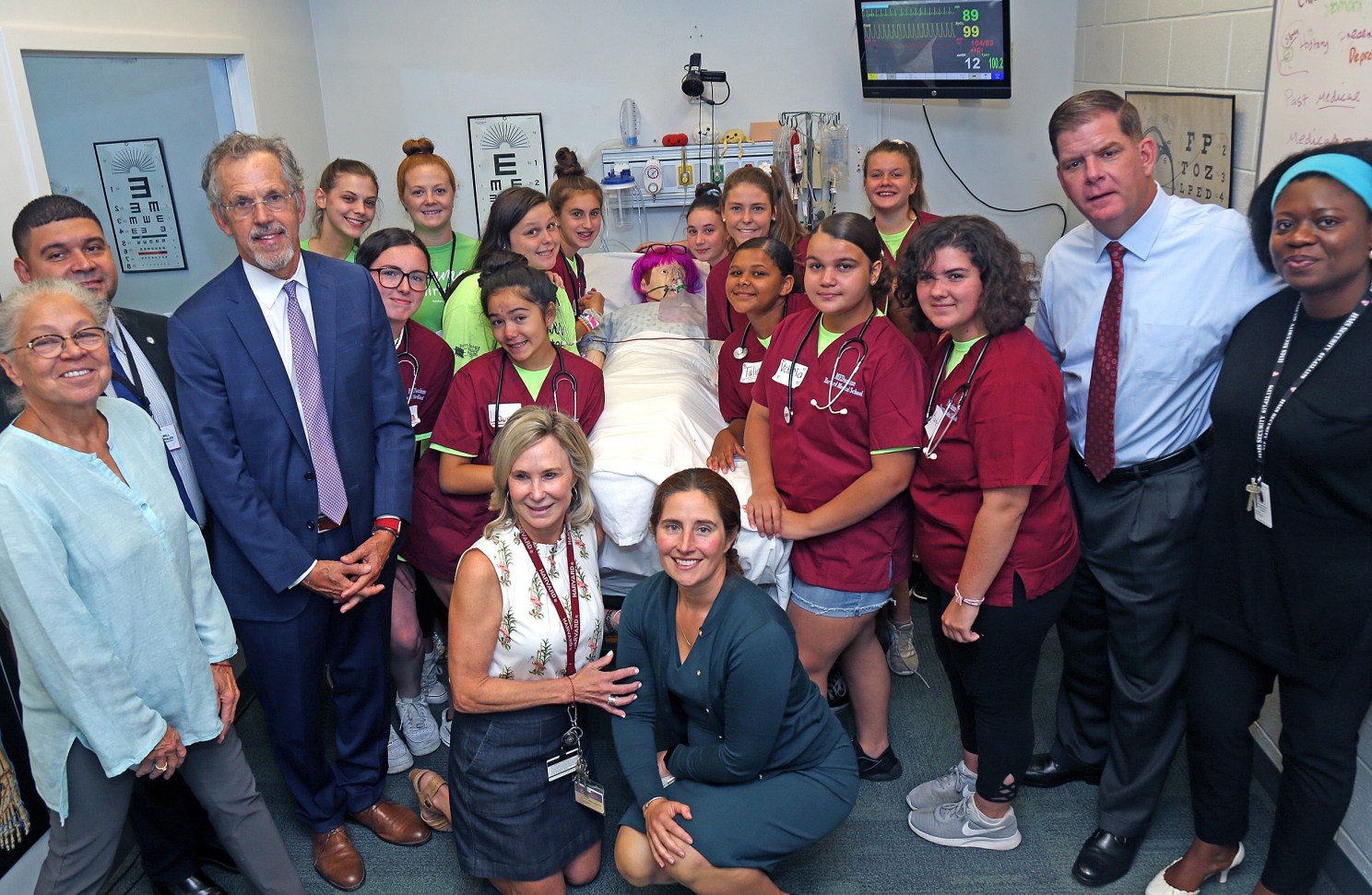Mayor Walsh visits simulation lab at Medical School

Boston Mayor Martin J. Walsh visits students taking part in the MEDscience program at HMS. Photo courtesy of MEDscience
Harvard’s MEDscience program recently welcomed Boston Mayor Martin J. Walsh into its Simulation Lab at Harvard Medical School. The program, which was first launched in 2005, is a STEM (Science, Technology, Engineering and Mathematics) initiative aimed at inspiring students by engaging them in science through hands-on experiences. Research shows that students who learn through simulation are often able to deepen their understanding of an issue by connecting it to real-life experience.
Mayor Walsh joined students from the from the Boston Centers for Youth & Families (BCYF) Super Teens pre-employment and leadership program in learning about the dangers of addiction, and what do to if you encounter someone in throes of an addiction crisis.
The students faced a simulated medical emergency scenario posing a real-life challenge, whereby they encountered a young “patient” (in this case a robot mannequin) in severe distress and in need of lifesaving treatment. The students were asked to evaluate the patient, assess the symptoms, arrive at a clinical diagnosis and perform treatment.
Health care providers and educators were on hand to coach students and help them understand the biological mechanisms of addiction, how certain drugs affect anatomy and physiology, and how they can permanently change brain chemistry.
“Mayor Walsh was able to witness what we see every day at MEDscience: High school students catapulted into a real life-like learning simulation unlike any they’ve ever experienced, fully immersed in understanding and problem solving an urgent medical emergency, in this case an opioid overdose,” said Julie Joyal, executive director of MEDscience. “The Mayor’s moving comments about the drug crisis, addiction and education put this in perspective for our students. It was truly an exceptional day.”
At the end of the simulation, students learned how drugs affect the neurobiology of the brain and administered Narcan. Joyal says the program is committed to trying to close gaps in opportunity, achievement, and inspiration by driving home the message that STEM-based careers are open to all. It also stresses the importance of critical thinking, leadership, problem solving, and teamwork.
Each year, the program educates more than 1,400 local high-school students on the Harvard Medical School campus and is currently in 30 schools throughout the greater Boston area.
For more information please visit http://hmsmedscience.org/




